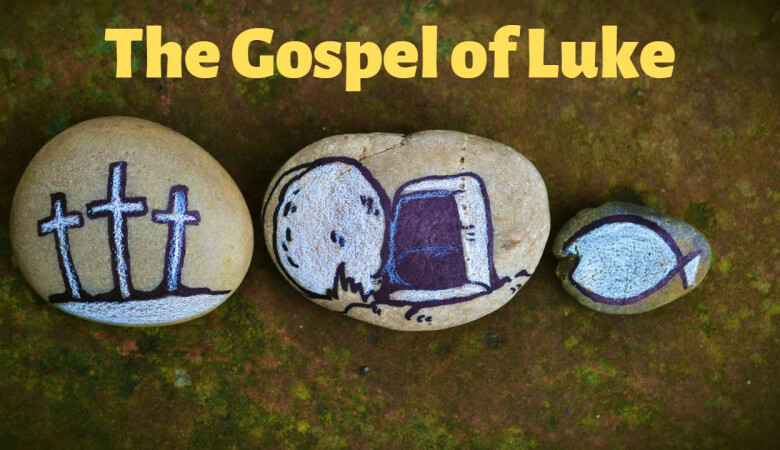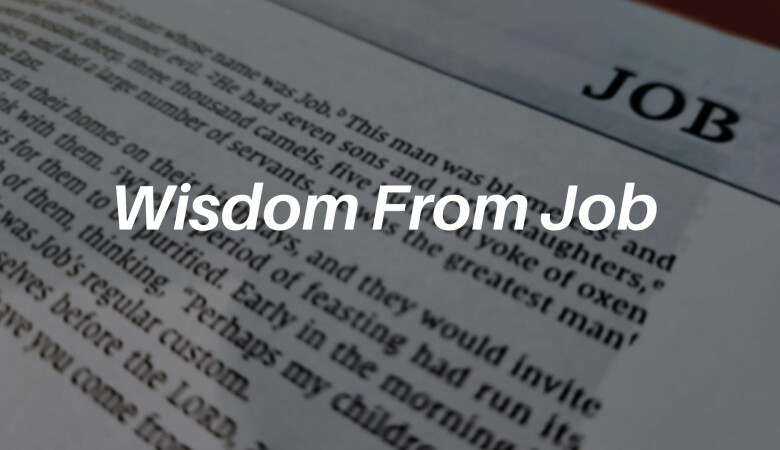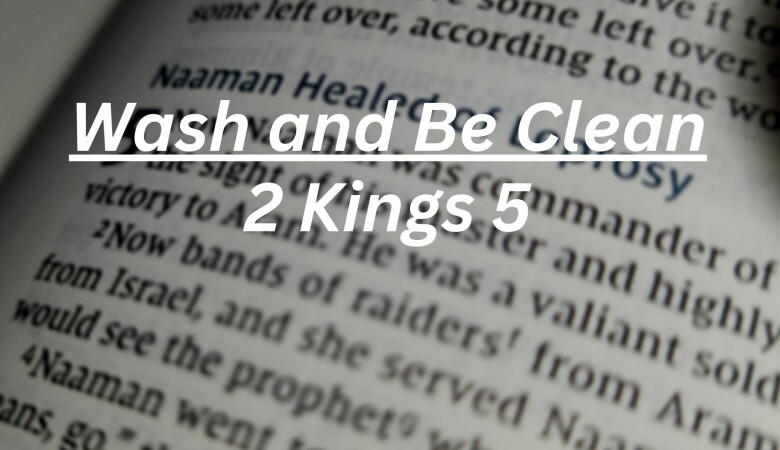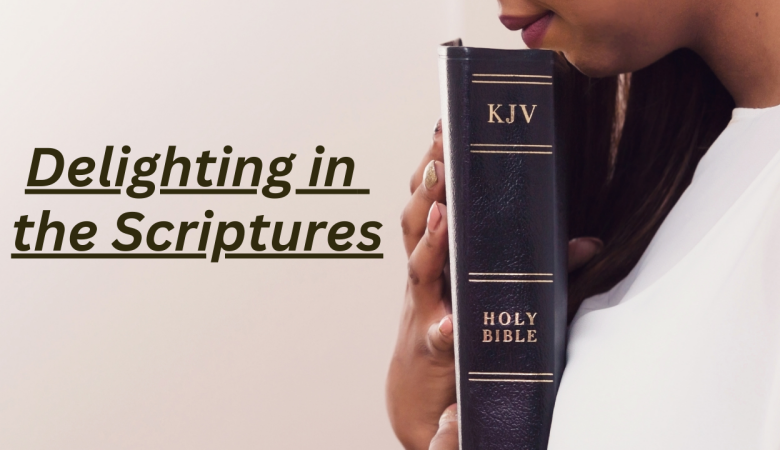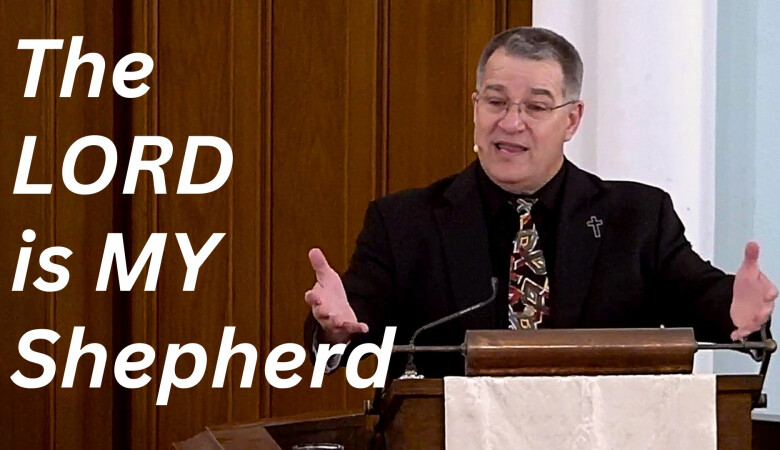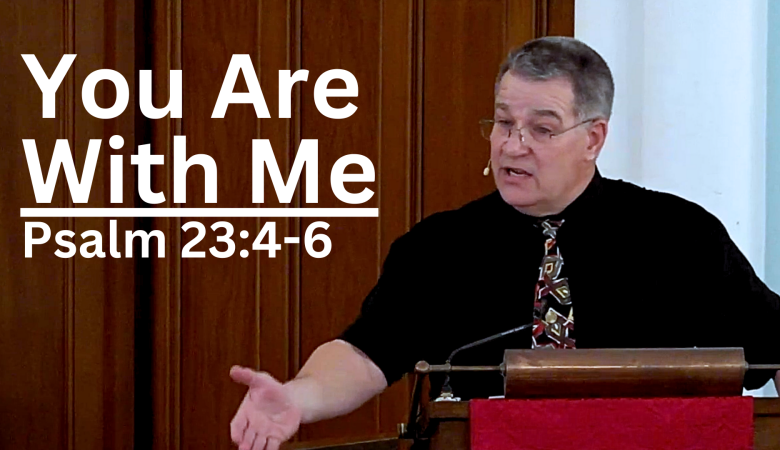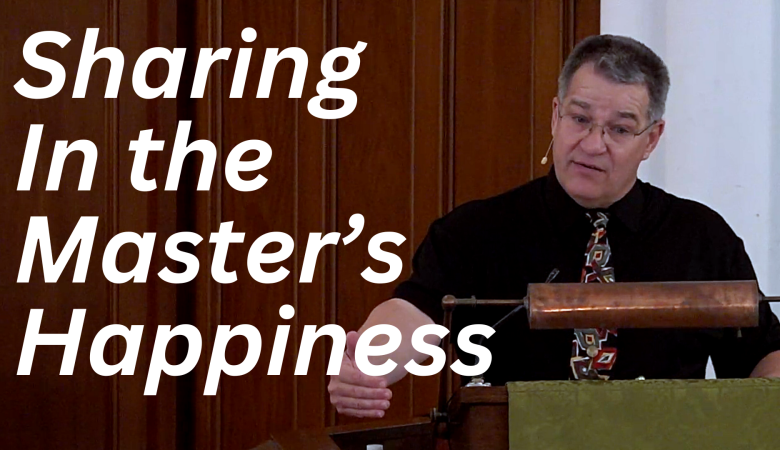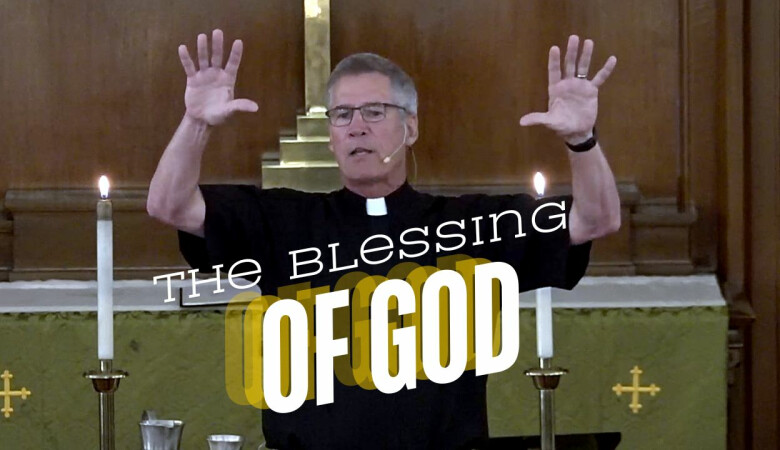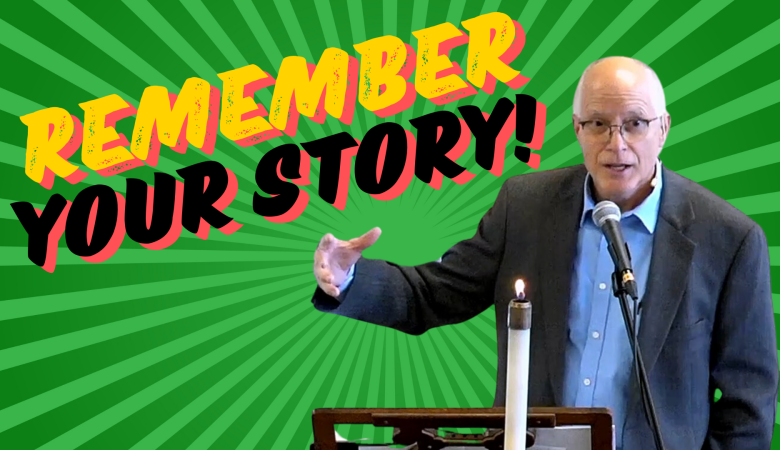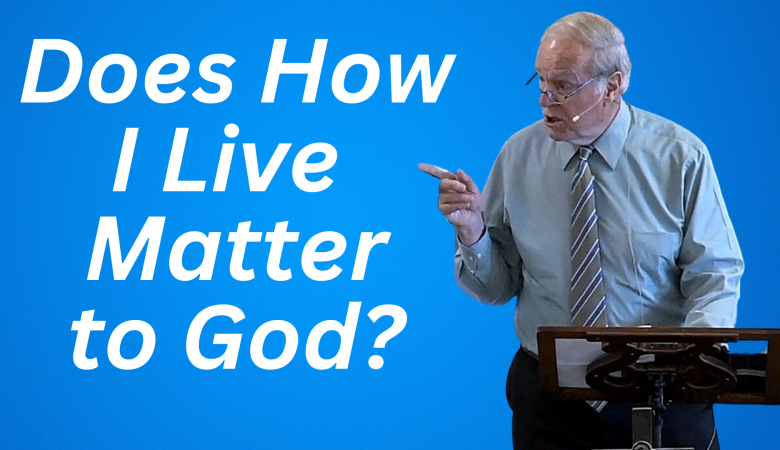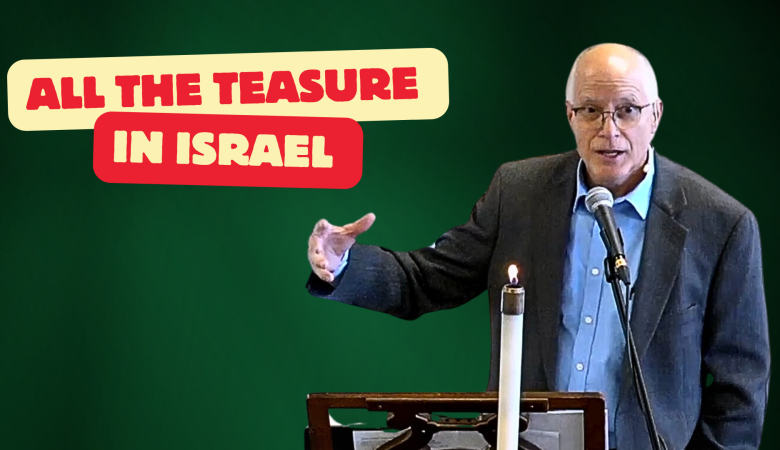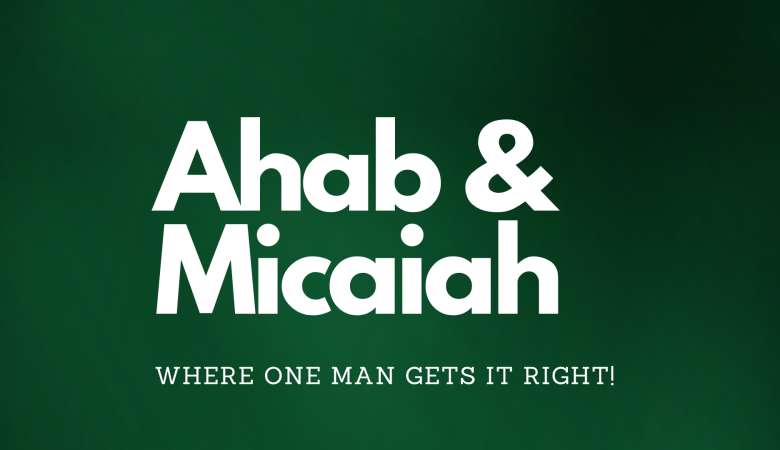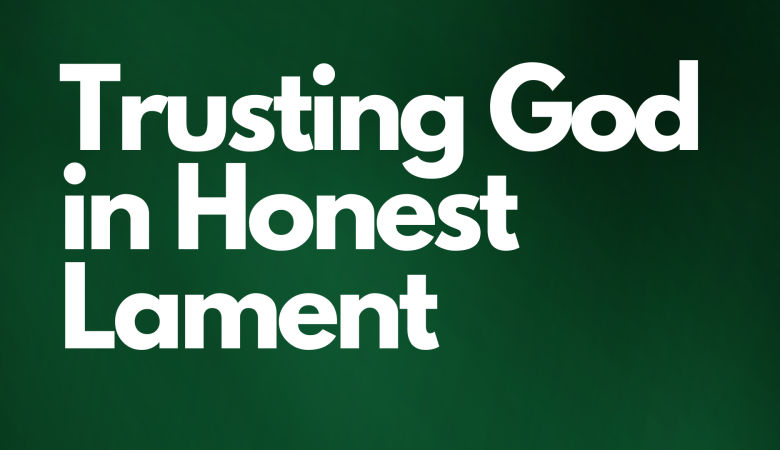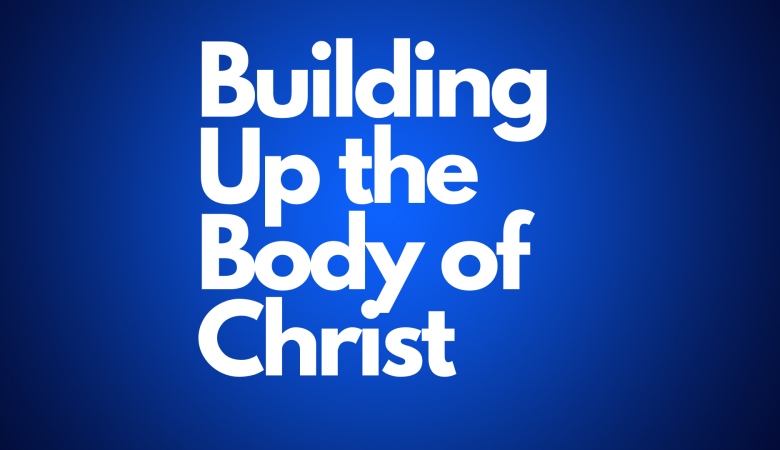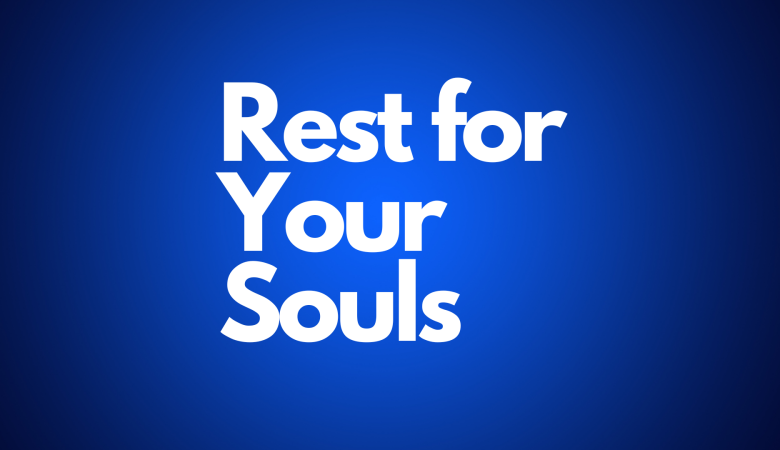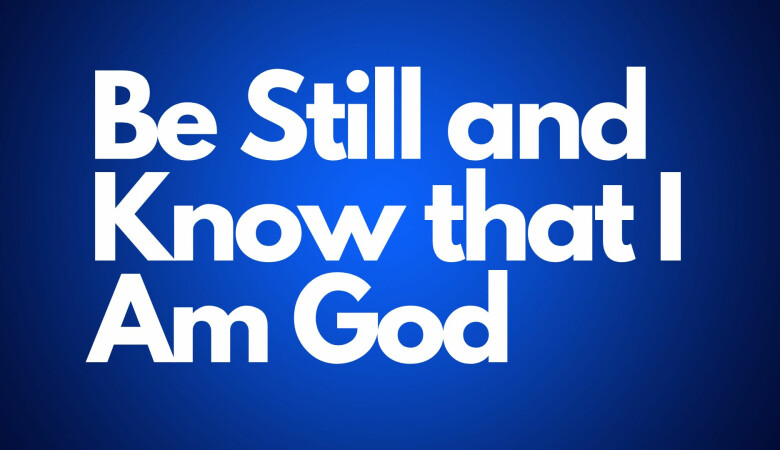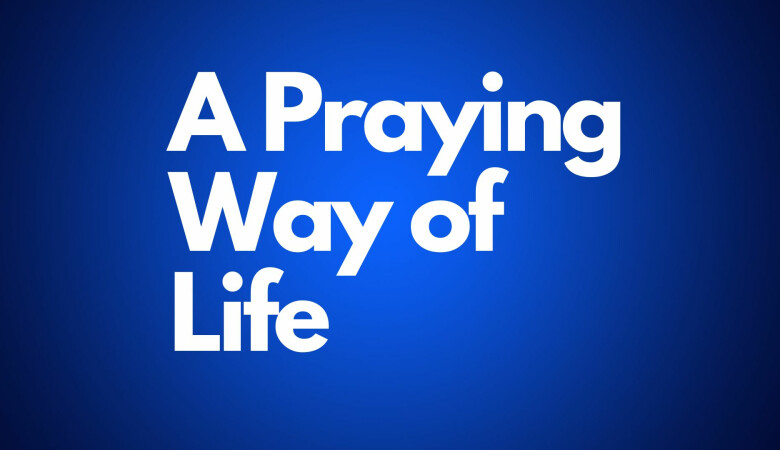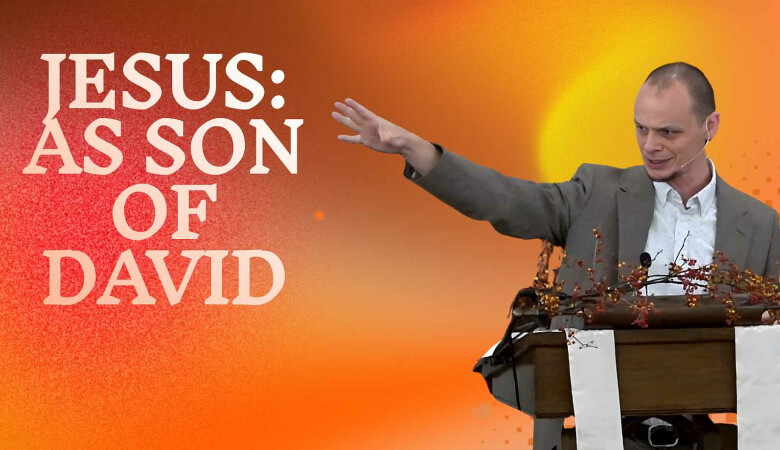Series: Guest Preachers
Mother, Church
May 11, 2025 | Jed Stalker
Passage: Luke 2:34-35
Summary
Motherhood exemplifies a profound form of sacrificial love that extends far beyond biological ties. Through Hannah's story, we learn three vital principles: wanting deeply, praying fervently, and giving sacrificially. This kind of selfless love isn't limited to biological mothers - it's a model for how all Christians can care for others. Like Hannah who gave her long-awaited son back to God, we're called to love others with grace and persistence, nurturing their spiritual growth while holding them loosely.
Transcript
Oh Lord God, we give you thanks and praise, for you are good and your mercy endures forever. It is good to be in your house this morning. Please open our hearts and let us hear your word. Please let the words of my mouth and the meditations of our hearts be acceptable in your sight. O Lord, our rock and our redeemer, we pray this in Jesus name, Amen.
I do want you to know that in preparation for this sermon, I did some serious research. I texted our family group chat and asked for things that you ended up saying as a mother that you never thought you would say as a mother. Here follows a partial list. 1. No, you may not put your broccoli in my coffee. 2. Do not put your face on people's feet. 3. You are not allowed to say please in this house. Are you imagining what led to that?
- And then this is my personal favorite from my own wife. I dropped pizza on my baby. So being a mother makes you do and say unexpected things, right? Motherhood is hard.
It's hard work keeping small people alive and clean. Eliza Roper, who I don't see today, told me a great story a couple of weeks ago about how as a very new mama, just a week or two into little Finn's life, she woke up in the middle of the night sort of terrified because she didn't remember Finn being in bed with her. And here he was. Well, so she wakes up and she starts bouncing him and she doesn't realize that it's the cat. She's trying to cradle the neck, the cat, and doesn't notice the fur or the tail, right?
So sleep deprivation, being a mama makes you sort of temporarily crazy, right? So that's a funny story, funny quotes. And if you've ever been like a mother or a father, you'll kind of laugh and nod and remember those times and how different they are from everyday life. But of course, mothering just isn't about birth and infancy and very young childhood, right? It's about everything that comes after that.
And the text that we read from the Bible this morning remind us that this mothering thing is not for the faint of heart.
Think about how Mary was prophetically welcomed into motherhood by Simeon, right? A sword will pierce through your soul also. Now, of course, that's an extreme case. Praise the Lord. Not everybody's mothering experience is going to be as tumultuous as being the mother of the Son of God.
But while not everybody gets crucified, nobody makes it through life without getting beat up a little bit. And if you are a mother, your heart gets beat up a little bit every time your child goes through difficulties. Right. So being a mother is no joke. And just to make a note, culturally, it is not getting any easier.
There's a news story about 10 years ago now where Hallmark, the card company, decided to donate thousands and thousands of cards to prisons so that prisoners could send Mother's Day cards should they want to, at no cost. If they signed up for this, well, this was a huge hit. Tons of people appreciated it. Lots of really nice news stories came out of this. Good on you, Hallmark.
Well, so Hallmark thought this was a great idea, and they thought they would try the same thing again the following year on Father's Day. Well, guess how that goes, right? Total flop. Almost nobody in this country signed up in the prisons to send a Father's Day card. And the reasons for this, People with strong father figures in their lives are usually not the ones in prison.
Right. So what this means, I imagine, is that the moms in our country largely are raising our children without the support that God intended, and they are being bruised from that all around us. So there's no guarantees that things are going to go right for you as a mother. But as a society, as a country, I think we still all understand the importance of motherhood. There's a lot of support, no matter where you go, for moms.
This means that at the same time, moms are some of the most valued members of our society and also some of the most vulnerable members of our society. Why both at once? Well, I suspect it's because we all had mothers, and we didn't all treat them the way that we should have all the time. And so we've all seen from the inside how mothers bear more than they should have to bear. And we're all sort of trying to make up for it.
So what I want to start off saying today is this. Thank you, mothers of our community and of Second City Church. And, of course, I don't mean just physical mothers. I mean spiritual mothers, too. You can have a huge influence in people's lives without having physically produced them.
So mothers of all kinds, you are loved and valued, and we appreciate the work that you do. And the Lord sees and will reward all of the stuff that you do that doesn't get noticed even by your own children. Amen. Right. Okay.
All of that was sort of an introduction. I want to use all of that stuff. Mothers are underappreciated. Mothers are vulnerable. Motherhood is painful.
Motherhood is unfairly demanding. I want to use all that as a sort of a springboard to what I want to pitch today to us as a community, right? As a church. And I want to invite us all to be more like mothers, okay? We can all be more suffering and underappreciated and vulnerable guys, okay?
So my title today is Mother Church. There's a comma in there that is a comma of direct address or evocative comma for you grammar people, right? That's not just an accident. Think about that old line that you hear quoted sometimes. No man can have God for his father who does not have the church for his mother.
We can discuss the extent to which this is true. It's certainly not true in the way some people have used it. Meaning to say, if you're not a member of my specific denomination or brand of Christianity, you're not there for a Christian, right? But there is some level of truth, right? No man can have God for his father if he will not have the church for his mother.
Think about it. Who did Jesus come to save? He came for his body, which is the church, which is his bride, right? If you're a person who's saying, I want to be a Christian, but I don't want anything to do with the church, you're. You're saying, I want to be the beloved of Christ without being a part of the beloved of Christ.
There's like, there's a simple math problem there or something, right?
Anyway, what I'm talking about right now with this is if we are called to have the church as our mother, we as the church need to do our best to make sure the church is being mother ing. It should be easy for people to find the church a mother, right? So how can we, as individuals and as a body, be mothers, Be mother E, be mothering? Well, I think it starts with what we saw with Mary. A sword will pierce through your soul.
Friends, what is mothering somebody but being willing to love that person at cost to yourself? All of us, when we're open to relationships of any real depth, we're opening ourselves up to being wounded. CS Lewis, in his great book the Four Loves, says this about love. To love at all is to be vulnerable. Love anything and your heart will be wrung and possibly broken.
If you want to make sure of keeping it intact, you must give it to no one, not even an animal. Lock it up safe in the casket or coffin of your selfishness. But in that casket, safe, dark, motionless, airless, will change. It will not be broken. It will become unbreakable, impenetrable.
Irredeemable. If we are willing to love, we are willing to be hurt. The two things are almost synonyms. And of course, we see this most profoundly in Jesus himself, who demonstrates his great love for us by his suffering, by his agony and death. Right?
And so we're all in the same boat together. If we're willing to love, we're willing to be hurt. Now, I want to go back to our Old Testament texts in 1st Samuel 1, and I want to look at Mary's prototype, Hannah. I think there's a number of things that we can learn from Hannah. Whether we're male or female or biological mothers or not, or old or young.
I think there are things that we can learn here and that we can use as models in our own spiritual life. And by the way, Hannah is a positive figure in this text. We read this, and I think we might think, like, oh, she's acting pretty strange, but she's definitely a positive figure. I know this in part because Luke seems to use Hannah as his model for Mary in his own Gospel. So, for instance, this occurs 1, in the long prayer that's given to both of them at the end of their narratives.
Two, the specific word handmaiden. Both of them use the word handmaiden in relation to themselves. Hannah and Mary both do. And then finally, at the end of the records, Samuel and Jesus, the sons that come from these two episodes, both of them are said to, quote, grow in stature and favor with God and man. The two lines are almost identical.
So there's. Mary is very definitely modeled in Luke on Hannah. Okay, so she's a positive figure for us. Anyway, so I'm taking everything that Hannah does here is worthy of praise and emulation, even if it seems weird or out of place. So here on Mother's Day, what can we learn about being a loving community?
From Hannah? To me, it boils down to three points. We need to want hard, we need to pray hard, and we need to give hard. Right? So first, one, want hard.
Hannah is an intense person. She has a definite desire, and she knows it and she expresses it. I think that sometimes we have this idea in our spheres that progressing in holiness is actually just progressing in being a boring person or even being bored with life, just not caring what's going on around you. Right. I think that's totally wrong.
And I think we see this in part in this text. Our desires should be increasing. They should be getting calibrated right on the right things, to use a really good metaphor, but they should be increasing, getting more poignant. As we increase in holiness. I want to come back.
Come back to that point. But for now, let's look at the text here. Hannah has a definite desire. It's for children. Elkanah, her husband.
So we're talking a lot about how mothering is hard, but this text suggests that being a husband is like no walk in the park either, Right? Hannah is a godly woman. She is a holy person, Right? And she is not making things easy on Elkanah. Right?
So Elkanah tries to comfort Hannah with himself. Look at verse eight. He says, am I not more to you than ten sons? Right? And the answer is totally no.
And she's right. A husband's not a kid. She didn't have what were her soul's deep longing, and she knew she couldn't accept any substitutes. So I think there's a good and healthy element to this rejection of Elkana's misguided gallantry. Hannah didn't just want to be a recipient of love.
She wanted to be a giver of love. And the desire to be a giver of love is, at its root, a desire to be like God himself. Because, beloved, God is love, right? We love because he first loved us. So the desire to have an object to love is nothing short of a healthy expression of the image of God in us.
I think Hannah is right to want to have someone to love. And so the question then for us is, how hard do we want to love? Do you remember the Queen song? If I was brave like Peter, I would be singing right now. But I'm.
I'm not. But can anybody find me somebody to love? I need somebody to love. Friends, ask the Lord to inflame that desire in you. Let's be like Hannah.
Let's be like Jesus. Be a lover. Ask the Lord to find you somebody to love. Part two. Hannah didn't just want hard, she prayed hard.
If Hannah had wanted hard and pouted, that would be a sad story. And it wouldn't be in the Bible, probably, right? We all know enough people like that already. But Hannah didn't just pout. She prayed.
She prayed really hard, right? She went to Shiloh. Interestingly, the temple had not yet been built, right? Solomon wasn't born yet. So Shiloh is where the high priest was.
It's where the tabernacle was being stored. So she goes there and she. It says it. She prayed unto the Lord and wept sore in the King James. In here, a little more discreetly, it says, wept bitterly.
But that's great. She's praying so intently that even though she wasn't praying out loud, she was making some kind of commotion. And Eli notices and comes over and accuses her of drunkenness. That's why, by the way, I have that quote from Baudelaire, the French poet, in the bulletin. Be drunk always on wine or poetry.
As you wish, he says, right, well, Hannah is drunk on prayer here. I have that in there. Not just because being a mother makes you want to drink sometimes. One time, a very nice Southern doctor told my wife and I that the best remedy for baby Beatrice's colic was a little whiskey for mom and dad.
He was a very nice guy, wore a bow tie. Not to make light of this too much, and there's a lot that we can go into here, power differentials and things like that. But my point is that Eli is not far wrong. Hannah is drunk, or at least she's in an altered state of consciousness, right? She is so intent on getting God's attention that she's behaving in such a way that it's mistaken for physical drunkenness.
And by the way, who is God to Hannah, right? Experientially, if you look back at the text, look at verse 5. The Lord had closed her womb. That's the text of the Bible, right? Hannah only knew God as someone who was not giving her what she wanted.
And yet she did not allow herself to get cynical. She did not allow herself to get bitter. Instead, she continued to go to God in prayer. And in this, I think she reminds us of the widow that Jesus talks about in his parable, right? The widow who continuously went to the judge, the persistent widow.
The way the Lord frames it is he says we ought to pray always and not become discouraged. That's scripture. What that means is that there's going to be a temptation to be discouraged, right? The message of the Bible is not you pray and then everything's awesome. Great news, right?
The message of the Bible is sometimes you pray and pray and pray and it looks like nothing is happening, but you pray anyway. And Hannah is a model for us in this, friend. I commend to you Hannah's persistence. I commend to you Hannah's drunkenness, even though it would totally embarrass me if I saw you at this. I think we need to be less mindful of ourselves and more mindful of.
Of those people around us, right? And getting ourselves into a position where we are mindful of them in prayer.
Looking at my own life, I'm extremely good at being anxious about things, but I'm Extremely bad about casting my anxiety upon the Lord because he cares for me. Right. I feel like Hannah is a model to us here because she's anxious, but that she casts her cares upon the Lord. I'm not just advocating emotionalism. I'm not saying get drunk on emotion all the time.
And actually the text doesn't allow us to do that. Look at verse 18. So this is after Hannah has prayed. It says, she said, let your servant find favor in your eyes. Then the woman went her way and ate and her face was no longer sad.
Listen to the wise words of the great 17th century Pastor Matthew Henry on this verse. He says, Hannah had by prayer committed her case to God and left it with him. And now she was no more perplexed about it. She had prayed for herself and Eli had prayed for her. And she believed that God would either give her the mercy she had prayed for or make up the want of it in some other way.
Prayer will smooth the countenance. It should do. So. So what I'm saying here is we should be really earnest when we do pray and. And then we should be really calm when we have prayed.
One way of thinking about this is we can exhaust ourselves in prayer, just tire ourselves out. And then when we're done praying, we can really rest having given our cares over to God. I want to tell some stories about prayer really quickly. First off is a personal one. I knew a couple who was struggling with infertility.
And by the way, I just wanted to stop here and say that I know the desire to be a mother in the agony when you're not one, according to the normal course of things. It's just really hard. I know this from this couple and I know this from this text, among other things. And I just want to not be insensitive to that. I know Mother's Day can be a hard time for people in that situation, so please go to somebody and pray.
You know, be loved. But anyway, this couple that I knew, I knew they had been trying to get pregnant for a while, and it just seemed like things kept stretching on and these guys just weren't having their prayers answered. And after a while and I just. They just kind of got sadder and quieter every time I saw them. And after a while of this, I said, all right, that's enough, right?
And I knew these guys pretty well, so I actually knew where the man had proposed to his wife. And it was pretty close to where I lived. So every day after work I went home and I got changed and I ran to the Spot where the man had proposed to his life. And I demanded that the Lord give them a child. And I did this for a while.
And then after a while, Lord answered the prayer. And now every time I see their little one, right, I'm reminded that God is a God who answers persistent prayer.
Now don't start thinking I have some kind of special link with the Lord here. There's plenty of other things that I've been uppity about with the Lord and he has not answered me. But take this as what you will. It feels pretty good when the Lord answers a big one, right? One more story.
This is one that many of you know already. This is the story of the most famous extra biblical mother in Christian history. I want to talk about Monica, or St. Monica, as our Catholic friends call her. She is the mother of the famous theologian Augustine, who, following the closing of the canon in the Bible, is the most important Christian in history.
John Piper says this. It's not just me. So Augustine, he'd been a bad guy. He, he broke his mom's heart with specifically his sexual ethics. He was a, he was kind of running around, right?
And also these stupid religious experiments that he was messing around with. And Monica was a faithful Christian and she begged the Lord for years that her son would turn around, would repent and become a Christian. And again, it took a while, but man, did the Lord answer her prayers, right? This was no deathbed conversion. And by the way, her husband Constantinius appears to have been converted on his own deathbed.
But Augustine, when he gets turned around, this in God's providence is literally world altering, right? So Augustine, in his famous book the Confessions, he writes about this and I want to read a little bit of that to you. So this, this quote's a little bit difficult to understand because it in part it's translated and also it's written as a prayer. So when Augustine uses the second person when he says you, he's not talking to you, he's talking to the Lord. Anyway, here's what he says for everyone.
Indeed, she, his mother was a servant of servants. And everyone acquainted with her gave her great praise and loved you whom they met in her heart, a heart revealed by the impact of her holy behavior on others. She cared for her children, repeating her birth pangs for them whenever they strayed. Isn't that a beautiful thought? That we can meet the Lord in somebody else's heart and that we do meet the Lord because of other people's prayers?
Right? So what I'm saying here is who are we Praying for the way that Hannah prayed for a son. Who are we praying for? The way that Monica prayed for Augustine? Friends, let's be earnest, like these great women in our prayer.
So, third point. Hannah wanted hard. She prayed hard. What else did she do? She gave hard.
So admit it. When we first read this text, you were kind of thinking, hannah is pretty selfish, isn't she? Admit it. Couldn't she have just been a good stepmom to Pen and I as kids? Couldn't she just learned to be content?
Why does she have to make things so rough on old Elkana? Well, I don't think the text lets us see us that way, in part because of what we already talked about. Also, her name, Hannah, means grace. That's kind of hard to beat. Nice job, Tanis.
But also, there's a repeated theme in this chapter, so look again with me here. So, verse 11, it says, I will give him to the Lord all the days of his life. Verse 22. I will bring him so he may appear in the presence of the Lord, and there dwell forever. Verse 28.
As long as he lives, he is lent to the Lord. What does this mean? Hannah wanted a child badly. Desperately, right? But she didn't want the child in part for herself.
She wanted the child to be able to give.
She needed something better than what she had in order to have something good enough to give to God. And then once she gets it, once she gets this baby that she prayed so hard for, she turns right around and gives the baby back to God. And this is just the way of things for us as a people of God. God gives to us so we can give to others and we can give back to Him. Think about the elders, right?
In Revelation, they've been given these crowns of glory that presumably they earned through pretty hard work, right? What do they do? They turn around and throw them in worship at the Lamb, right? That's the normative motion of gifts to us. They come to us by the grace of God, and we give them right back.
And, friends, if you're a Christian and you're a parent, you've already made precisely the same bargain as Hannah here, whether you know it or not. All right, I don't want to startle you, but you've got your kids on loan from their real daddy. Your mothering and your fathering, they are real, but they are creaturely imitations of the kind of everlasting, sacrificial love God has for them already. So you have your kids and you're weaning them just like Hannah, why? So they may appear in the presence of the Lord and dwell there forever.
That's real mothering. That's real fathering. It's training your children not to be loyal ultimately to you or anything else that you love, except to God himself. Right? And, children, this applies to you.
This applies to all of us. This kind of parenting is one that we can do with anybody, everybody that we love. Okay? We can lift them in prayer to a position where they'll be able to be lent to the Lord as long as they live. And by the way, in the presence of the Lord, they'll live a long time.
Okay? Now you might be thinking, come on, stalker. This is just allegorizing. This isn't a reformed reading. Well, as the great Robert Farrar Capen says in his book the Supper of the Lamb, which you are welcome to come out and read with us on Thursday nights here at the church, consider how wrong you are.
Let's look at some New Testament texts to back this all up. So, Romans 16:13. Paul, he says to greet Rufus, chosen in the Lord, also his mother, who has been a mother to me as well. You women, you can be mothers to more than just your own children. And remember, Paul is a grown man saying this so you can mother people of all ages, right?
Galatians 4:19. Paul calls the Galatians quote, my little children, for whom I am in the anguish of childbirth, until Christ is found in you. This is the masculine Paul, right? Anybody who's sitting out there and saying, I'm a guy. I'm not listening to this mothering stuff, well, this is Paul.
He's comparing himself not just to a woman, but to a woman in childbirth. It doesn't get much more feminine than that, right? Remember how I said your desire should be increasing as you increase in holiness? Paul is in agony here to see the people that he loves well off in their relationship with God. And then there's the one that we read this morning already.
First, Thessalonians 2. 7. Paul says this. We were gentle among you, like a nursing mother taking care of her own children. Paul says that he and his male godly associates acted like gentle nursing mothers.
My dudes, are we taking notes? The clear implication here is that church leadership should be gentle and shelfering and life giving. So mothering is for everyone. Let's learn from Hannah. Let's be grace to the people around us.
And like Augustine, in the quote that I've read, remember the mothering love that we've been shown by our own earthly mothers of course, but also by the spiritual mothers. The Lord has richly blessed us with philosophy. Philosopher James K.A. smith, in his book on the Road with St. Augustine.
He's got a fantastic chapter in there on Monica. You should read the book, especially this chapter. In this chapter, he describes how his own wife, standing in front of Monica's tomb in Rome, was moved to tears. And this is what he says about that incident. Quote.
In this hushed space, witnessing this encounter, I realized something I hadn't appreciated before and probably can't ever fully understand. A solidarity that spans centuries. A sympathy that transcends geography. This bond between Monica and mothers who weep and pray and chase their children. Misunderstood, unappreciated, resisted, resented.
And yet none of that resentment could stop them. None of that resistance will deter them. No lack of gratitude could ever persuade them to give up like grace. Monica and her emissaries do not work on a logic of return.
Friends, this selfless and maternal love is what we all need. It's what the world desperately needs. It's a shining note of the gospel in our world that's so intent on only doing what feels good. So let's all be more motherly. Let's enter into the great faithful line of Hannah and Mary and Monica.
Let's offer one another sacrificial love and kindness. Let's want one another's good and work for it. Let's pray for more people in our midst to pour. Pour the love of Christ into. Let's adopt one another as family so we can more wholeheartedly give one another to the Lord.
Amen. Let's pray.
Oh Lord, we give you thanks once more for all of the care that you have shown us throughout our lives. For the care that you have shown throughout generations.
Lord, we ask for your grace that we might be good to those around us, that we might be faithful. We ask, O Lord, that your glory would shine in us. We pray all these things in Jesus name. Amen.
Series Information
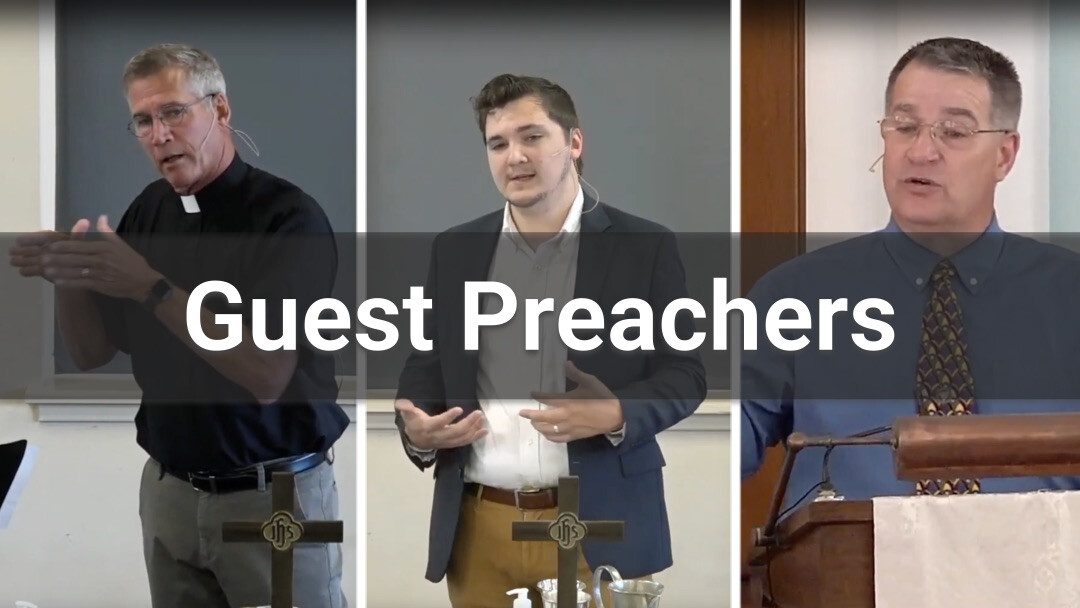
When Pastor Peter is away Second City Church is blessed to hear other men God has gifted to preach.

